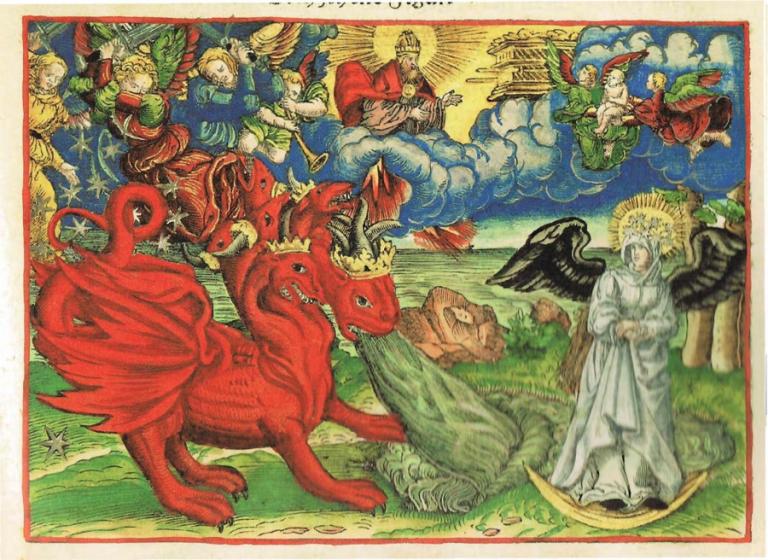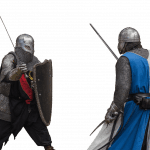He begins by showing that the structure of Proverbs is that of a “romantic comedy.” The young man must choose between two women: The Lady Folly, who would seduce him and lead him into sin and destruction. Or the Lady Wisdom, who would help him in the ways of God and in a productive life. The book ends with the young man’s final choice: A real woman, no longer a symbol, who is the Excellent Wife.
Leithart then examines the Excellent Wife passage in Proverbs 31 and points out that the language used to describe her is epic and heroic, identical to that used to describe Biblical heroes and Yahweh Himself. Moreover, the Hebrew–which speaks of knowing good and evil and “tasting” what she chooses in the marketplace–recalls Eve, the original Lady of Folly. But the Excellent Wife is the anti-Eve, the Lady of Wisdom.
Not only that, Leithart says she “gathers up the archetypal women of the Bible,” representing all of the Bible’s heroines from Sarah to Mary. In turn, she stands for the Bride of Christ: “With her bread, wine, lamp, and rich fabrics, she is Israel, a type of the church, the new Eve, heroic bride to the Last Adam.”
Then Leithart says this (my bolds):
Throughout the Bible, history is secretly determined by what happens in the realm of women and children. Israel’s patriarchal narratives contain war stories, but are primarily family dramas about fertility and infertility, rival wives, conception and birth. The seams of biblical history are marked by miracle births—Isaac, Moses, Samuel, John, Jesus. In Genesis, a serpent tempts Eve, and biblical history is interspersed with Satanic figures who assault women to seize or destroy their children— Pharaoh, Abimelech, Athaliah, Herod. In Revelation, John sees a laboring woman threatened by a dragon who intends to devour the child as soon as he’s born. Through it all, the people of God are buoyed by the confidence that the woman’s seed will crush the serpent’s head. In hope, they sing “Unto us a child is born.”
Proverbs’s epic poem throws our own cultural battles into high relief. Today, women are encouraged to view domesticity as demeaning, and to believe that heroism is found only outside the home. Christians fight for educational freedom to prevent some rough dragon from devouring our children. It’s no surprise that abortion generates our most intense political combat, because the future of humanity depends on conception, pregnancy, birth, and the rearing of children. Still today, history’s hidden mover operates among women and children. Still today, our future depends on heroic domesticity.
[Read the entire essay.]
Illustration: The Woman and the Dragon of Revelation 12, print by Lucas Cranach and his workshop, in Luther’s Translation of the Bible (1534) [public domain] via Wikimedia Commons













